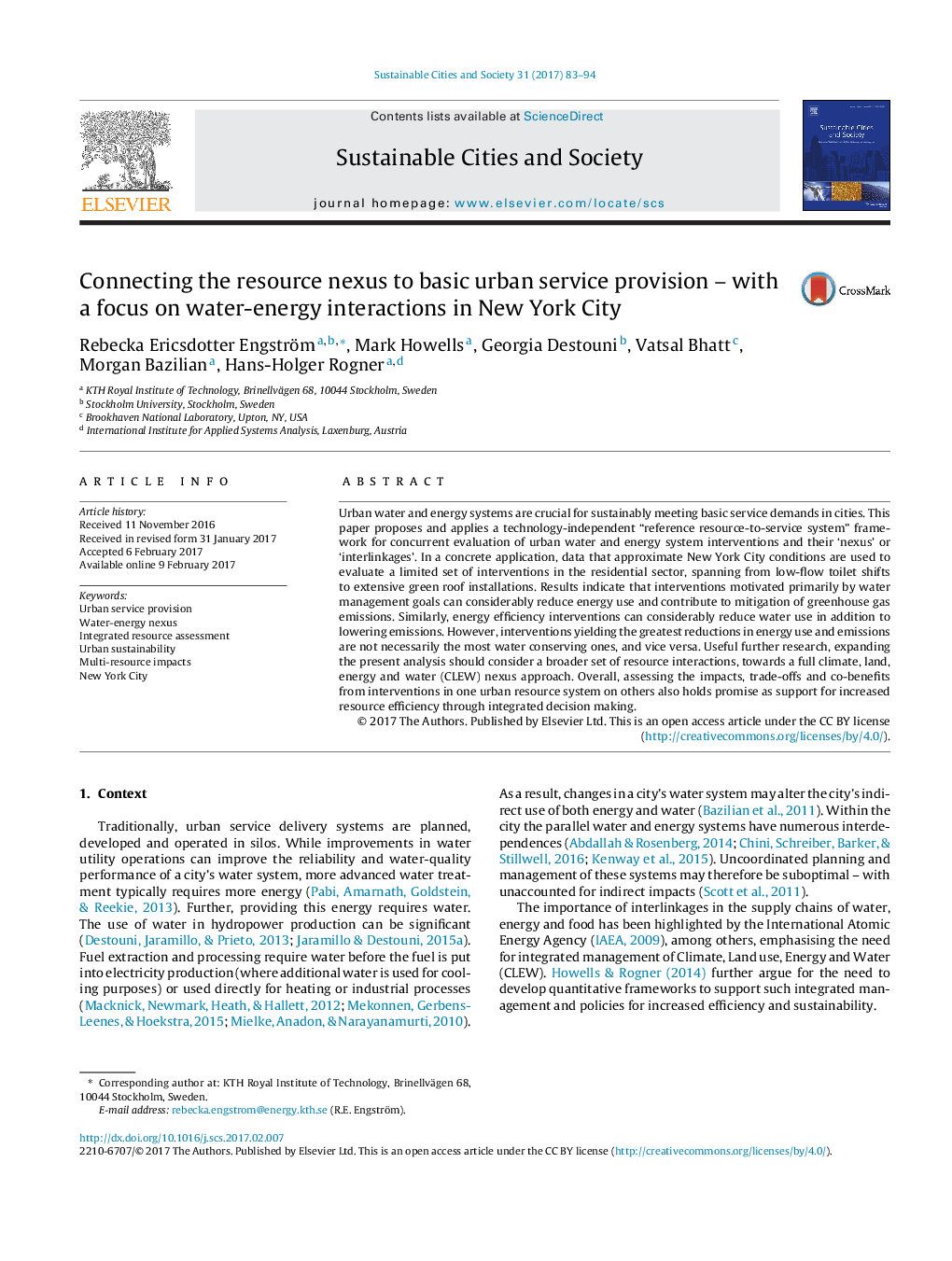| Article ID | Journal | Published Year | Pages | File Type |
|---|---|---|---|---|
| 4928054 | Sustainable Cities and Society | 2017 | 12 Pages |
â¢Urban water and energy systems have essential and multiple interlinkages that should be considered when assessing the effects of efficiency and sustainability measures.â¢A prototype Reference Resource to Service System (RRSS) framework is used to represent the urban water-energy nexus and linked impacts of measures.â¢Indicative analysis based on example data for New York City reveals large variability in multi-resource and climate mitigation benefits.
Urban water and energy systems are crucial for sustainably meeting basic service demands in cities. This paper proposes and applies a technology-independent “reference resource-to-service system” framework for concurrent evaluation of urban water and energy system interventions and their 'nexus' or 'interlinkages'. In a concrete application, data that approximate New York City conditions are used to evaluate a limited set of interventions in the residential sector, spanning from low-flow toilet shifts to extensive green roof installations. Results indicate that interventions motivated primarily by water management goals can considerably reduce energy use and contribute to mitigation of greenhouse gas emissions. Similarly, energy efficiency interventions can considerably reduce water use in addition to lowering emissions. However, interventions yielding the greatest reductions in energy use and emissions are not necessarily the most water conserving ones, and vice versa. Useful further research, expanding the present analysis should consider a broader set of resource interactions, towards a full climate, land, energy and water (CLEW) nexus approach. Overall, assessing the impacts, trade-offs and co-benefits from interventions in one urban resource system on others also holds promise as support for increased resource efficiency through integrated decision making.
